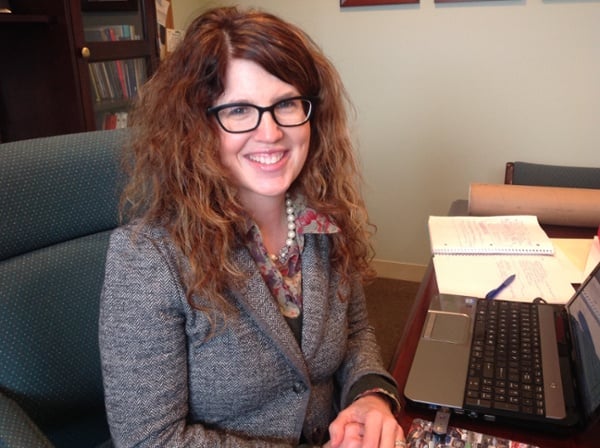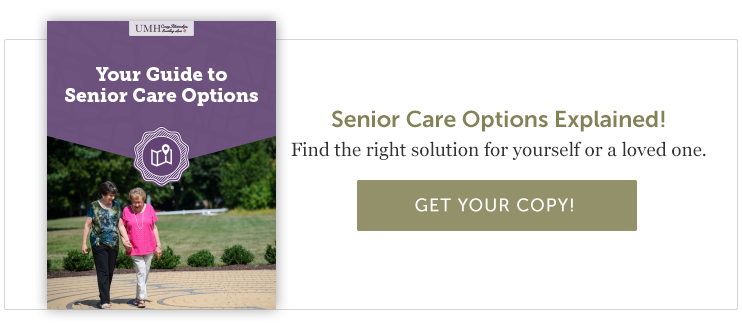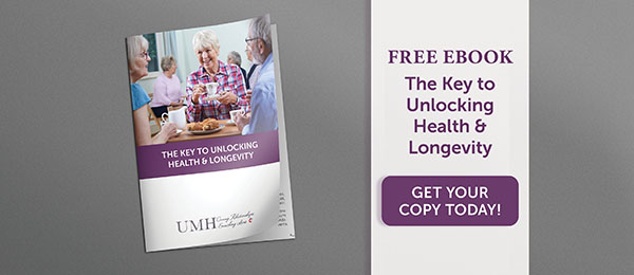10 Tips for Men Managing the Demands of Senior Caregiving
assisted living | Senior Living Communities CT | senior health | senior health tips | Independent Senior Living | healthy living | independent living in ct | aging well
No matter your gender, caring for an aging spouse, parent, family member or friend is no small or easy task. It presents a variety of demands that can impact a caregiver’s physical, mental, and emotional health. All of these can make it easy to get caught up in self-defeating habits.
For the rising population of male caregivers, in particular, there are some unique challenges that can quickly erode overall well-being. Therefore, it’s crucial for men who find themselves taking on such a role to understand and manage the responsibility in a healthy way.
While gender stereotypes often complicate this effort, the truth is men are equally capable of providing compassionate care to an aging loved one. Throughout the journey, it’s important for men to focus on personal well-being in a way that enables them to stay healthy and continue offering the best care possible for the senior in their life. The following tips help to support those goals for men managing the demands of senior caregiving.
1. Integrate physical activity into your routine.
The responsibilities associated with senior caregiving are many and varied, and they can often take over the day. They may quickly (and understandably!) become excuses for a male caregiver to neglect personal exercise. But this is not an area to be overlooked.
While exercise is crucial for the health of any caregiver, consider that a man’s gender alone puts him at higher risk for heart disease. The benefits of regular, ongoing physical activity can not be understated for male caregivers. This area of well-being should be a top priority for men facing the demands of senior caregiving.
2. Focus on personal nutrition.
As vital as exercise is, it’s only one part of the health equation for male caregivers. In order to maintain optimal well-being, it is highly important to maintain a balanced, nutritional diet. Just as with exercise, proper nutrition improves health outcomes. It also supports greater levels of energy, which is essential for men who are responsible for caring for an aging loved one.
3. Allow for proper sleep.
A good night's rest can lower stress, help maintain a healthy weight and increase one’s sense of happiness. Of course, the stress and demands of senior caregiving often put a wrench in one’s slumber routine. Regardless of the cause, lack of sleep can be a major challenge for effective caregiving and overall well-being.
Male caregivers who experience diminished sleep because of insomnia, snoring, sleep apnea, gastroesophageal reflux disease, or other issues should seek the input of their doctor and develop healthy routines that allow for adequate sleep.
4. Find healthy ways to manage stress.
Mental health is no less important than physical health, especially in a role that often causes high levels of stress. Certain mood disturbances, like depressive episodes and feelings of isolation, are top signals that a caregiver is experiencing major stress. Added to this is the misuse of prescription drugs or self-medicating with over-the-counter drugs and alcohol to ease the symptoms.
While male caregivers require just as much support as female caregivers do, they are usually less likely to voice their stress and discuss their struggles. It is crucial for men in this role to seek out healthy ways to manage stress, including anything from exercise, meditation, and opportunities for relaxation to professional help.
5. Practice organization and time management.
Some male caregivers are balancing work life with caregiving, while others are simply struggling to meet all the time-consuming demands involved in caring for the senior in their life. As mentioned, there’s also a need to fit in healthy routines for personal well-being. All of this can feel overwhelming if organization and time management are not top of mind.
The best way to keep up is to get ahead. Set a schedule and stick to it, maintaining an updated calendar. Seek out resources for list making and schedule building, and streamline responsibilities with whatever systems work best for you. Practicing organization on a daily basis can improve one’s approach to caregiving and overall well-being.
6. Make self-care a habit.
Self-care is a word that gets thrown around a lot, and it’s often associated with the female population. But REAL self-care is a necessity that extends just as much to male caregivers. It doesn’t have to mean pampering oneself with luxuries, but rather integrating the hobbies and activities that allow a person to restore oneself.
Whether you love sports or music, prefer the indoors or out, like to head out with friends or unwind in a quiet space with a good book, make time for doing what brings you joy and peace—and do it often. This will support a happier, healthier, more relaxed you. Filling up your own cup affords you the strength and resilience to provide appropriate care to the senior in your life.
7. Prioritize check-ups.
Health issues can affect anyone at any time. So even men who seem healthy on the surface should make a concerted effort to stay on top of their own medical appointments. The best way to be proactive about one’s own health is to get regular check-ups.
Just as is the case for the senior in your life, prioritizing medical care in a preventive way helps detect emerging issues more quickly so they can be dealt with more easily. If you want to continue providing care to an aging loved one, it’s necessary to stay healthy yourself.
8. Stay connected and accept help.
No man is an island, and there is no shame in having help from others. For some male caregivers, asking for or accepting this help can feel embarrassing or uncomfortable. But in reality, there’s no more appropriate and necessary time to stay connected to one’s network of loved ones and community.
When others offer their time and assistance, be prepared with a list of ways they can contribute—from running errands and preparing meals to simply spending quality time with the senior in your life. Don’t be afraid to share the responsibilities when people offer to step up.
9. Seek out resources and support.
Many male caregivers feel ill-equipped or too inexperienced to properly handle the demands of caring for an aging loved one, which can create a great sense of overwhelm. If that’s the case, seek out caregiving resources in your community for acquiring valuable knowledge and support.
Consider joining a support group, attending classes about the disease or circumstances your aging loved one faces, or taking advantage of services such as transportation, meal delivery, or housekeeping. These resources are vital keys to maintaining a healthy approach to caregiving.
10. Evaluate all caregiving options.
As the reality of an aging loved one’s condition evolves, so will a caregiver’s capacity to manage the demands placed on them. There may come a time (and it could be very early in the journey!) when the level of care required is more than you can manage effectively. And that’s OK. After all, male caregivers are humans, too.
Along the way, it’s important to continually re-evaluate the circumstance and consider whether a senior living community may be in everyone’s best interest. From respite care and rehab to assisted living, independent living, and memory care, there are plenty of options to suit the needs of an aging loved one, each with different advantages. Carefully consider the needs of the senior in your life, in addition to your own, to make healthy decisions around the caregiving solutions best suited to those needs.
For information and insight on how to thrive as a caregiver, download your free copy of The Essential Caregiver's Guide.
To find out how United Methodist Homes provides a wealth of offerings and opportunities to support the health and well-being of our residents, contact us today or schedule a complimentary visit now.
About Elizabeth Bemis
In 1998, I drove past an assisted living community construction site, learned that it was part of United Methodist Homes and realized the next stop on my professional journey was to work for a mission driven organization. Soon after, I joined the team as Executive Director of our Middlewoods of Farmington community and later served as Regional Manager for the Middlewoods properties before accepting my current role as Vice President of Marketing, Promotions, and Assisted Living Operations. I enjoy spending time with my family, cooking, reading, walking, and love working alongside our staff, residents, and families to build strong communities that reflect the mission, vision, and values of United Methodist Homes.

Our Blog is a 2016 Platinum Generations Award Winner! The Generations Award is an annual international competition for excellence in senior marketing recognizing professionals who have communicated to the 50+ Mature Markets.





